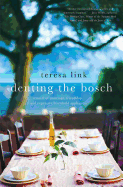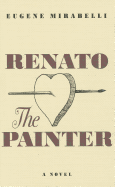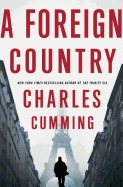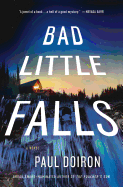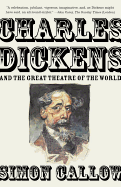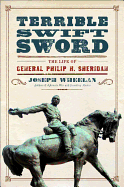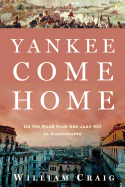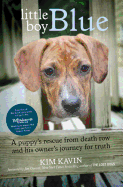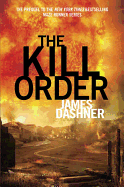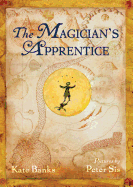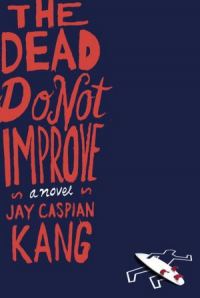 Jay Caspian Kang's The Dead Do Not Improve (Hogarth, August 7) would be an edgy novel under any circumstances--one of its major themes is the complex reactions of young Korean-Americans to Cho Seung-Hui's role as the shooter in the 2007 Virginia Tech massacre. "We never talked about anything but Virginia Tech," Philip Kim, the narrator of much of the novel, recalls of one friendship, "and we never allowed ourselves to say anything about it that wasn't ironic or awful." Elements of Cho's own writings figure into the story, and though it's done in a way that's acknowledged as particularly dark, possibly even sick humor, these passages feed into a storyline that may feel even more disturbing to readers who encounter the novel so soon after the Aurora, Colo., shootings.
Jay Caspian Kang's The Dead Do Not Improve (Hogarth, August 7) would be an edgy novel under any circumstances--one of its major themes is the complex reactions of young Korean-Americans to Cho Seung-Hui's role as the shooter in the 2007 Virginia Tech massacre. "We never talked about anything but Virginia Tech," Philip Kim, the narrator of much of the novel, recalls of one friendship, "and we never allowed ourselves to say anything about it that wasn't ironic or awful." Elements of Cho's own writings figure into the story, and though it's done in a way that's acknowledged as particularly dark, possibly even sick humor, these passages feed into a storyline that may feel even more disturbing to readers who encounter the novel so soon after the Aurora, Colo., shootings.
"I'm trying to show how Cho Seung-Hui and Virginia Tech felt personal to people within the Korean community," Kang explained during an interview at Hogarth's New York City office, recalling how the sorrow and grief over the shootings was combined with fear, driven by memories of the Los Angeles riots, that all Koreans might face a backlash against Cho's actions. In The Dead Do Not Improve, he also contrasted the media's speculation on the motives of the (white) shooters at Columbine--and now at Aurora--with the search for meaning after Virginia Tech, which seemed to begin and end with the fact of Cho being Asian. "People were saying things like his parents must have been really strict," Kang recalled. "You have no evidence of that, you know? You're just taking the most basic cultural stereotypes about what you project his family to be and then blaming it on that, which is the laziest type of thinking possible."
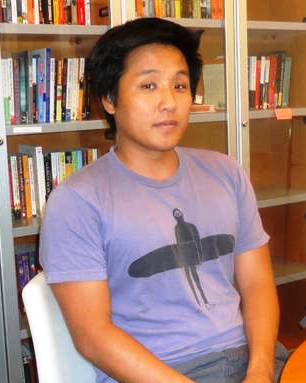 Philip Kim has several biographical details in common with Jay Caspian Kang, and with a first-person voice that frequently digresses from the main storyline into something more like a personal essay, it would be easy to confuse author and narrator. Too easy: "I don't ever identify with Philip. Even when I was writing it, I was consciously trying not to do that," Kang said. There's a real-life Philip Kim--a friend from Kang's MFA program--but he's not much like the fictional Kim, either. "I was trying to work against the idea that because your parents came from one place or you grew up in another place, that defines you," Kang explained. "It's a question I get all the time: 'Oh, you're an Asian and you grew up in the South; you must have grown up with an insane amount of racism piled on your head.' I understand it's well-intentioned, but what you're doing to me when you say that is just as awful.
Philip Kim has several biographical details in common with Jay Caspian Kang, and with a first-person voice that frequently digresses from the main storyline into something more like a personal essay, it would be easy to confuse author and narrator. Too easy: "I don't ever identify with Philip. Even when I was writing it, I was consciously trying not to do that," Kang said. There's a real-life Philip Kim--a friend from Kang's MFA program--but he's not much like the fictional Kim, either. "I was trying to work against the idea that because your parents came from one place or you grew up in another place, that defines you," Kang explained. "It's a question I get all the time: 'Oh, you're an Asian and you grew up in the South; you must have grown up with an insane amount of racism piled on your head.' I understand it's well-intentioned, but what you're doing to me when you say that is just as awful.
"I just wanted to create a character who embodied something of the anger that I see in a lot of Asian-American males, who felt more alive and modern than the brooding, angry silent Asian male stereotype," he continued. "And because I wanted the biographical details to be inconsequential, I just substituted my own background."
After getting that MFA from Columbia, Kang spent the next six years writing a lot but not publishing anything. "I just had one of those attitudes where I couldn't quite get out in the world," he confesses. Then, as a joke, he wrote a statistical breakdown of the debate over who was a better diva, Whitney Houston or Aretha Franklin, which ran as a post at The Awl, where it was spotted by sportswriter Bill Simmons, who was putting together the sports/pop culture website Grantland and invited Kang to join the project as a writer and editor.
"When I was in college, we would wait for his columns to come out," Kang said. "I can't imagine having a better mentor for writing on the Internet." At the same time, Kang recognizes that, between Grantland and other freelance journalism assignments, he hasn't written much new fiction in recent years. "There are ways you can become a very popular Internet writer if you spend enough time writing about big topics that people are interested in like, say, Mad Men or something," he reflected. "You can track your Facebook likes, track your Twitter followers, and at times I get caught up in some of that.... If you spend a lot of time on the Internet, it can be hard to extricate yourself from the idea that that's important. Because ultimately it's not. The things that win out in the long term, even on the Internet, are the things that are really good." So once he's dealt with many of his current nonfiction obligations, Kang reported, "after I get my head back into fiction... I think I'll go back and write another novel." --Ron Hogan, founder of Beatrice.com
Jay Caspian Kang: Against Asian Male Stereotype
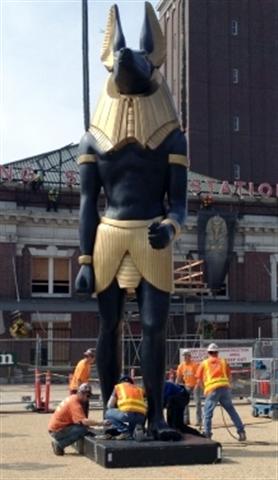 Early one May morning, my husband was walking near the Ship Canal that joins Lake Union and Puget Sound, when he did a double take. There seemed to be a giant statue of the Egyptian god Anubis moving slowly up the canal. He wasn't dreaming: the 28-foot-tall statue was being ferried to Seattle's King Street Station, to stand guard while the Tutankhamen exhibit runs at the Pacific Science Center. (The neon station sign has been amended to read King Tut Street Station.) It is quite magnificent.
Early one May morning, my husband was walking near the Ship Canal that joins Lake Union and Puget Sound, when he did a double take. There seemed to be a giant statue of the Egyptian god Anubis moving slowly up the canal. He wasn't dreaming: the 28-foot-tall statue was being ferried to Seattle's King Street Station, to stand guard while the Tutankhamen exhibit runs at the Pacific Science Center. (The neon station sign has been amended to read King Tut Street Station.) It is quite magnificent.


 Jay Caspian Kang's The Dead Do Not Improve (Hogarth, August 7) would be an edgy novel under any circumstances--one of its major themes is the complex reactions of young Korean-Americans to Cho Seung-Hui's role as the shooter in the 2007 Virginia Tech massacre. "We never talked about anything but Virginia Tech," Philip Kim, the narrator of much of the novel, recalls of one friendship, "and we never allowed ourselves to say anything about it that wasn't ironic or awful." Elements of Cho's own writings figure into the story, and though it's done in a way that's acknowledged as particularly dark, possibly even sick humor, these passages feed into a storyline that may feel even more disturbing to readers who encounter the novel so soon after the Aurora, Colo., shootings.
Jay Caspian Kang's The Dead Do Not Improve (Hogarth, August 7) would be an edgy novel under any circumstances--one of its major themes is the complex reactions of young Korean-Americans to Cho Seung-Hui's role as the shooter in the 2007 Virginia Tech massacre. "We never talked about anything but Virginia Tech," Philip Kim, the narrator of much of the novel, recalls of one friendship, "and we never allowed ourselves to say anything about it that wasn't ironic or awful." Elements of Cho's own writings figure into the story, and though it's done in a way that's acknowledged as particularly dark, possibly even sick humor, these passages feed into a storyline that may feel even more disturbing to readers who encounter the novel so soon after the Aurora, Colo., shootings. Philip Kim has several biographical details in common with Jay Caspian Kang, and with a first-person voice that frequently digresses from the main storyline into something more like a personal essay, it would be easy to confuse author and narrator. Too easy: "I don't ever identify with Philip. Even when I was writing it, I was consciously trying not to do that," Kang said. There's a real-life Philip Kim--a friend from Kang's MFA program--but he's not much like the fictional Kim, either. "I was trying to work against the idea that because your parents came from one place or you grew up in another place, that defines you," Kang explained. "It's a question I get all the time: 'Oh, you're an Asian and you grew up in the South; you must have grown up with an insane amount of racism piled on your head.' I understand it's well-intentioned, but what you're doing to me when you say that is just as awful.
Philip Kim has several biographical details in common with Jay Caspian Kang, and with a first-person voice that frequently digresses from the main storyline into something more like a personal essay, it would be easy to confuse author and narrator. Too easy: "I don't ever identify with Philip. Even when I was writing it, I was consciously trying not to do that," Kang said. There's a real-life Philip Kim--a friend from Kang's MFA program--but he's not much like the fictional Kim, either. "I was trying to work against the idea that because your parents came from one place or you grew up in another place, that defines you," Kang explained. "It's a question I get all the time: 'Oh, you're an Asian and you grew up in the South; you must have grown up with an insane amount of racism piled on your head.' I understand it's well-intentioned, but what you're doing to me when you say that is just as awful.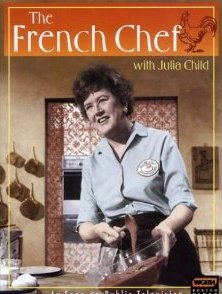 Julia Child was 49 years old when she co-published her first book, the revolutionary Mastering the Art of French Cooking. The 734-page cookbook simplified haute cuisine, making it accessible for the American home kitchen. The book became a bestseller and transformed Julia Child into a culinary and cultural icon.
Julia Child was 49 years old when she co-published her first book, the revolutionary Mastering the Art of French Cooking. The 734-page cookbook simplified haute cuisine, making it accessible for the American home kitchen. The book became a bestseller and transformed Julia Child into a culinary and cultural icon. Blogger Julie Powell sought inspiration for her life by channeling Julia Child in her own home kitchen in Julie & Julia. The book documents Powell's year-long quest to cook all 524 recipes found in Mastering the Art of French Cooking.
Blogger Julie Powell sought inspiration for her life by channeling Julia Child in her own home kitchen in Julie & Julia. The book documents Powell's year-long quest to cook all 524 recipes found in Mastering the Art of French Cooking.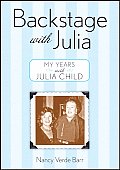 Nancy Verde Barr, an executive chef who worked as Julia's Child personal assistant for 18 years, penned Backstage with Julia: My Years with Julia Child, a rare behind-the-scenes glimpse of America's most revered chef.
Nancy Verde Barr, an executive chef who worked as Julia's Child personal assistant for 18 years, penned Backstage with Julia: My Years with Julia Child, a rare behind-the-scenes glimpse of America's most revered chef.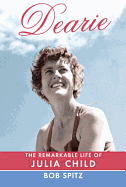 Before she died, Child gave her blessing to author Bob Spitz to write
Before she died, Child gave her blessing to author Bob Spitz to write 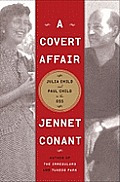 The union of Paul and Julia Child is the cornerstone of Child's posthumously published memoir, My Life in France, and of A Covert Affair: Julia Child and Paul Child in the OSS by Jennet Conant, which details the couple's turbulent years as members of the Office of Strategic Services during World War II and how they became caught up in the McCarthy spy hunt of the 1950s.
The union of Paul and Julia Child is the cornerstone of Child's posthumously published memoir, My Life in France, and of A Covert Affair: Julia Child and Paul Child in the OSS by Jennet Conant, which details the couple's turbulent years as members of the Office of Strategic Services during World War II and how they became caught up in the McCarthy spy hunt of the 1950s.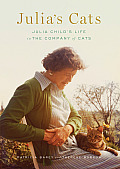 Julia's Cats: Julia Child's Life in the Company of Cats by Patricia Barey and Therese Burson gives us an unusual montage of the chef via her feline companions. This compact, entertaining read is filled with personal photos and letters that document the role cats played in Julia's life as she moved from Paris to Provence, Cambridge to California.
Julia's Cats: Julia Child's Life in the Company of Cats by Patricia Barey and Therese Burson gives us an unusual montage of the chef via her feline companions. This compact, entertaining read is filled with personal photos and letters that document the role cats played in Julia's life as she moved from Paris to Provence, Cambridge to California.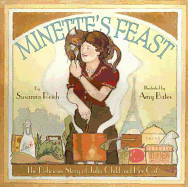 And for kids ages four and up,
And for kids ages four and up, 